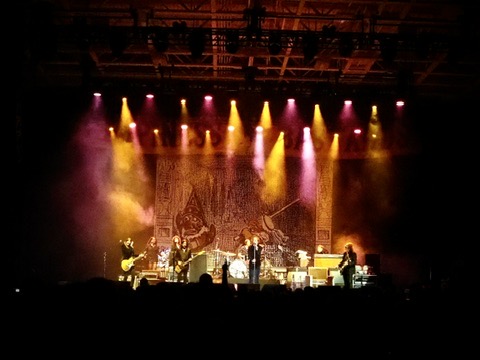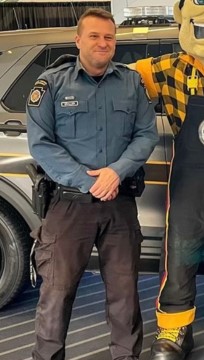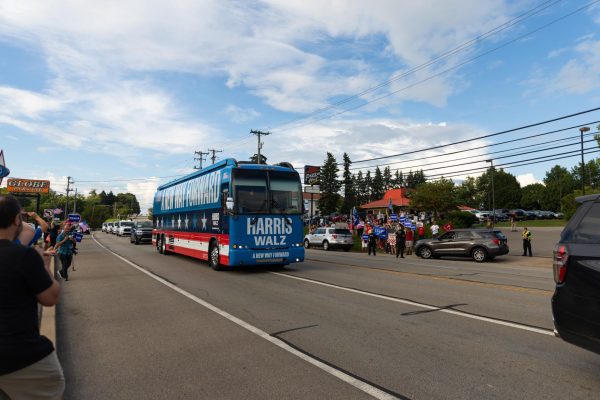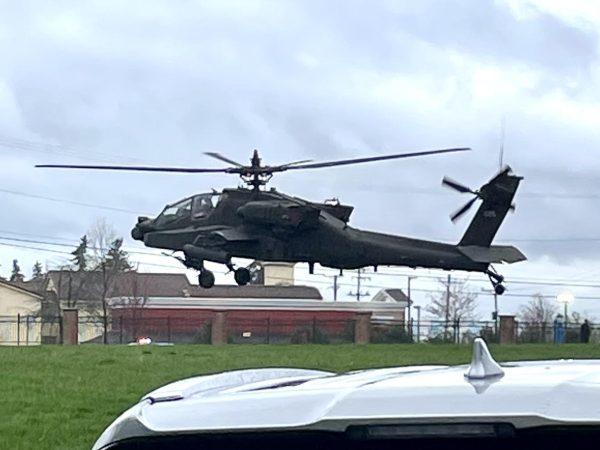Learning How to Scuba Dive…in Coraopolis
Haley Sawyer, Moon News Cloud Contributor
Scuba diving is synonymous with tropical locations with warm weather, palm trees, and crystal clear water.
Coraopolis, that is not.
But a perhaps less-than-ideal location didn’t stop father and son divers Joe and Jeff Petrella from establishing “Joe’s Scuba Shack” in downtown Coraopolis.
Both Petrellas became certified divers in 2000. After an introductory course, they decided that diving was a perfect match for them. Within three years, they had well over 200 dives.
The pair soon became scuba instructors. It was a perfect scenario, except for one thing.
“There was an independent instructor who didn’t have a shop that we were helping out a lot and so we were renting gear constantly from some of the other shops that were in the area,” said Jeff.
That was only one of the problems that he noted. Some shops had “weird hours” while another rented equipment that was in “really bad shape.” A third shop was owned by someone who was “really rude to all of the customers,” he said.
“We realized that there really wasn’t anyone here that we could trust to send all of our customers to.”
So on one late winter day, father and son decided that they would start a shop of their own. A fellow instructor owned a building in Coraopolis and offered a rent they could not pass up.
In 2007, “Joe’s Scuba Shack” was born.
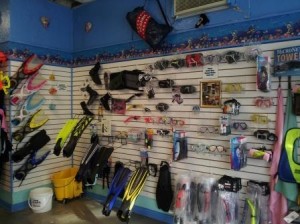
In addition to scuba gear, the store offers dive training and arranges diving vacations. Currently, there are four instructors on staff and four dive masters who work in conjunction with the store.
Training consists of three parts. First is the classroom section, which can be taken in person or online. After that, the novice diver moves to four three-hour pool sessions. Finally are the open water dives, four dives that take place over the course of two days.
Flexible schedule certainly helps the novice divers; learners do not have to stick to a specific day on a weekly basis to complete training.
Many people might have a difficult time thinking of a body of water to dive in aside from the rivers in downtown Pittsburgh. In fact, most local diving is done in abandoned strip mines or quarries.
“Those places are usually ideal for diving because they generally have a little bit better visibility and they’re usually too small for people to go out and do boating on, so we don’t have to worry about the dangers of divers and boats interacting,” explained Jeff.
Learning to dive in locally in a quarry can make tropical diving a lot easier.
“You’ve got very cold water, you’ve got dark and dirty water, the visibility isn’t that good,” said Joe. You’ve got to take them, wear a thick wetsuit and extra lead weight because the thick wetsuit makes you float.
“What happens is when you accomplish it and do it all in that environment, now when you go on a tropical trip, it’s like wow, where’s my equipment? Look how easy this is.”
The two claim that their style of training is a top reason for repeat customers and referrals. Even if divers move on from the cold waters, they typically return for gear.
Obviously, there are some differences in business from summer to winter. During the summer, instructors are in the pool training divers every day at some points. Every other weekend is filled with lake and open water dives.
In the winter, instructors will cut holes in the ice covering quarries and do some ice diving. Besides that, most of the business is brought by travelers who are going on a cruise.
“Uncle Joe’s Scuba” is one of six scuba stores in the area. Unlike other places, this store has regular hours and storefront.
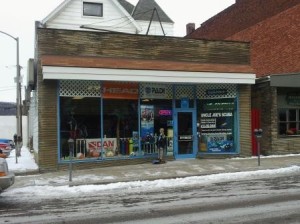
As the diving business partners advance their business, they hope to move to a bigger area, such as Robinson. Until then, the store will sit humbly Coraopolis, waiting for someone to discover diving.




